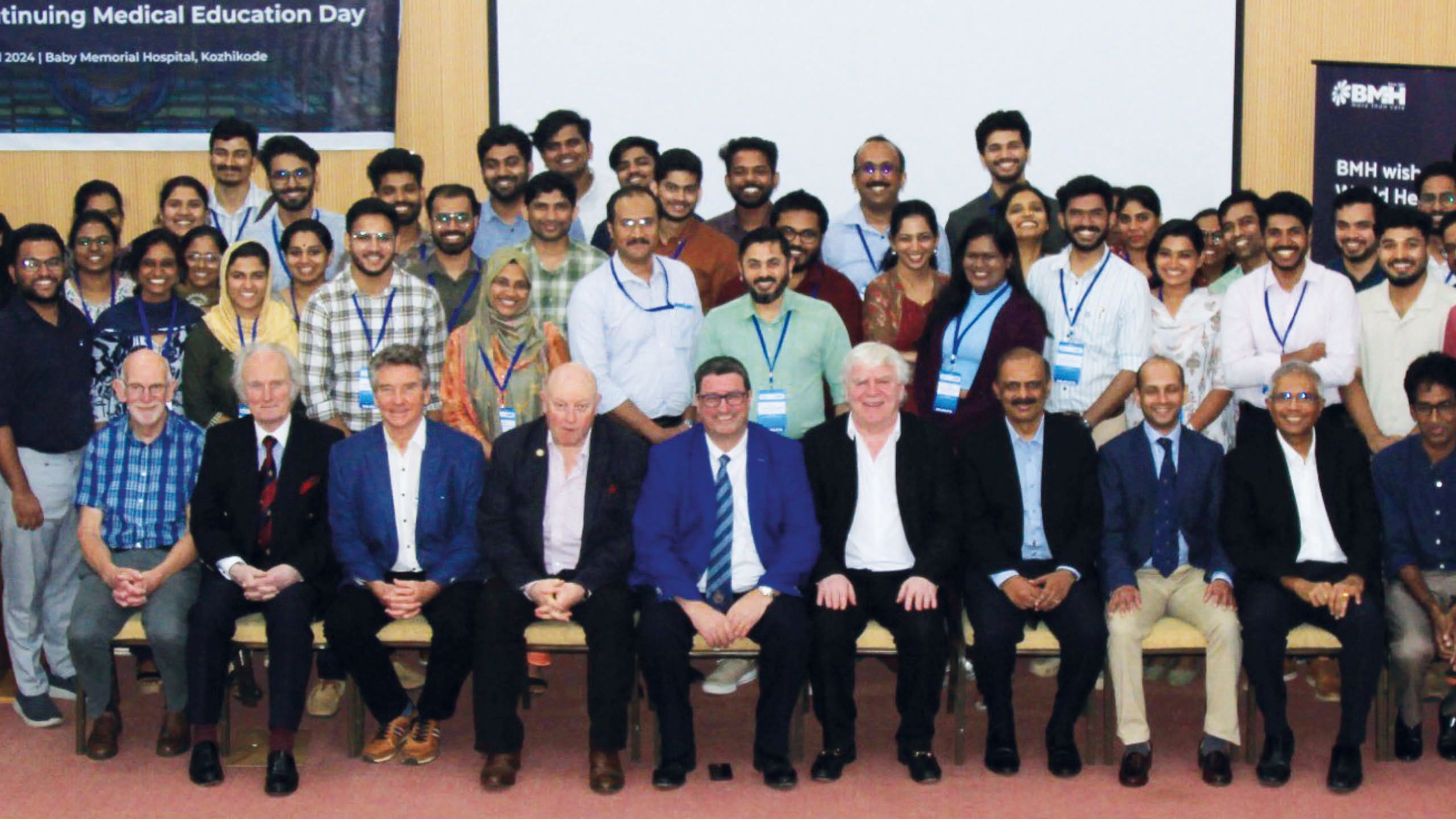It all starts here
Event in Kerala helps Indian trainees look to the future

Attendees at the event for medical students and trainees in Calicut, India
Attendees at the event for medical students and trainees in Calicut, India
T he Royal College of Surgeons of Edinburgh (RCSEd) is an international College which undertakes the MRCS Part B OSCE examination in centres around the world. From 4 to 6 April an MRCS Part B OSCE was carried out in Kerala, south-west India.
Also keen to provide engagement and education activities, the College hosted the ‘It All Starts Here’ event the following day at Baby Memorial Hospital, Calicut. Local examination host Krishna Kumar brought together 130 delegates in the early surgical training phase of their career as well as medical students and those completing the Indian equivalent of foundation training. The Faculty included those who had examined over the preceding days.
College President Professor Rowan Parks outlined the international status of the RCSEd and discussed supporting Affiliates, Members and Fellows around the world. It was apparent how almost everyone wished to have surgical training in the UK.
Raaj Praseedom, HPB Surgeon from Cambridge, offered personal experience on the challenges he faced, having completed his undergraduate clinical training in Kerala and then moving to the UK 30 years ago.
Surgical support
Many trainees come to the UK to a non-training post and Mike Griffin, Immediate Past-President, was able to highlight the College’s commitment to these SAS/LED posts and the support given to surgeons at this time in their career.
For those already in specialist training in India, an outline of what was available to them via the International Postgraduate Deanery of the College was outlined by Council Member Stuart Clark. He then described the core surgical training process that is completed in the UK, as this process has been made more accessible to international trainees.
The eligibility criteria was outlined in addition to noting the selection process takes months and can be completed virtually. This may be a further avenue of access to training opportunities in the UK.
“There was an emphasis on
portfolio development”
The symposium moved on to professional behaviours and Vascular Surgeon Andrew Tambyraja, from Edinburgh, discussed human factors in clinical practice, highlighting the Non-Technical Skills for Surgeons course.
The innovative role of the College in the development of educational and training courses was reaffirmed in the recognition and prevention of injury and deterioration (RAPID) course. Providing trainee surgeons with a means of approaching and resolving common critical conditions, this course has been expanded by the West Midlands team in the UK and will be available internationally.
Personal perspectives
The personal experiences of Faculty members gave credibility to the talks and Judy Evans spoke of the increasing number of women in surgery. There were female surgical trainees within the audience and her experiences encouraged them.
Gordon Findlater, Emeritus Professor of Translational Anatomy at the University of Edinburgh, gave an overview of the role of anatomy in the MRCS examination and the Wade Anatomy Programme.
The assessor role may not be clearly understood by candidates and Professor Joe Cummins outlined what is involved to ensure a fair, consistent and transparent experience for all candidates.
There was an emphasis on portfolio development throughout the day and how attendance at such a symposium could help trainees with the tangible evidence of a certificate and affiliate membership of the RCSEd, but also on a personal level with interaction with Faculty.
Engagement with trainees to facilitate their development had an emphasis on patient safety, while at the same time demonstrating that the College is an innovative international college, supporting trainee surgeons around the world.

